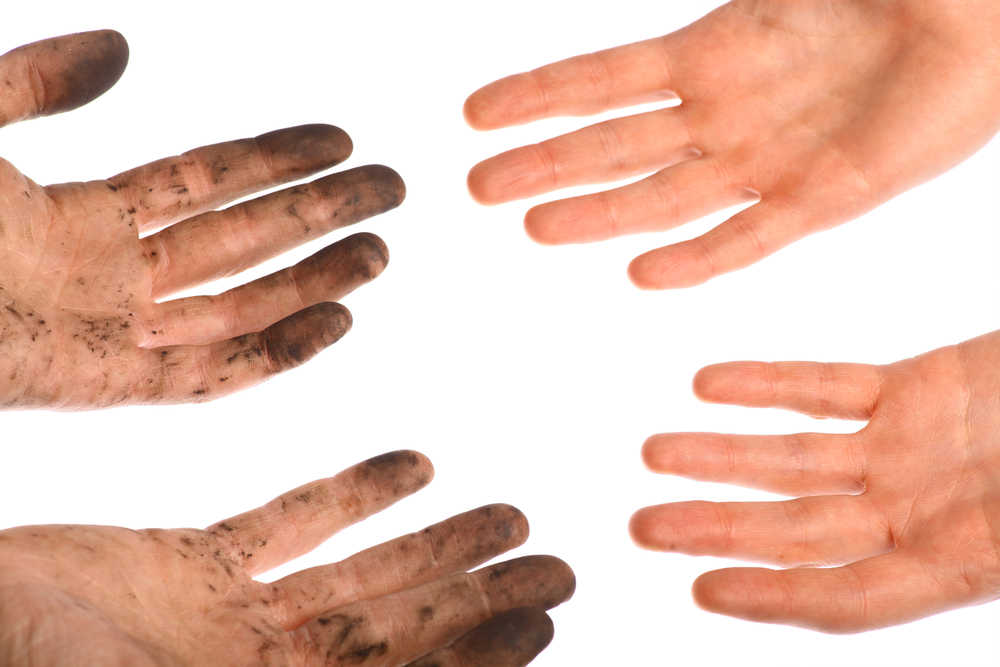
And the king spake unto Ashpenaz the master of his eunuchs, that he should bring certain of the children of Israel, and of the king’s seed, and of the princes; Children in whom was no blemish, but well favoured, and skilful in all wisdom, and cunning in knowledge, and understanding science, and such as had ability in them to stand in the king’s palace, and whom they might teach the learning and the tongue of the Chaldeans. (Daniel 1:3-4)
It was not uncommon in ancient times for a conquering nation to take the “best and brightest” from the conquered people and carry them back to their land to assimilate them into their culture. The conquering nation only further increased its might and prestige by doing so.
King Nebuchadnezzar was no different. He commanded the master of his eunuchs to choose from among the Israelites the best-looking, the wisest, and most talented noblemen and princes. His goal was to turn them into Babylonians and completely convert them to this new language, culture, and religion.
And the king appointed them a daily provision of the king’s meat, and of the wine which he drank: so nourishing them three years, that at the end thereof they might stand before the king. (1:5)
Ashpenaz, the master of the eunuchs, was to see that these young men ate the same food as the king and that they were educated in the same way as the Babylonians. They were even to be given new Babylonian names, further immersing them in their new lives.
Now among these were of the children of Judah, Daniel, Hananiah, Mishael, and Azariah: Unto whom the prince of the eunuchs gave names: for he gave unto Daniel the name of Belteshazzar; and to Hananiah, of Shadrach; and to Mishael, of Meshach; and to Azariah, of Abednego. (1:6-7)
Now, the Bible introduces us to four young men who were taken from their homeland of Judah to be assimilated into Babylonian culture. Keep in mind that they were among perhaps dozens to even hundreds of people taken back to Babylon from Judah.
Verse 6 tells us their birth names: Daniel, Hananiah, Mishael, and Azariah. Verse 7, however, tells us that Ashpenaz changed their Jewish names to Babylonian ones. The name changes are significant. Not only did the change strip them of their Jewish names, of which God was the center, but it also replaced them with names designed to honor the false Babylonian gods or the king, whom the people often worshiped as a god.
Daniel’s name is now Belteshazzar; Hananiah, Mishael, and Azariah become Shadrach, Meshach, and Abed-nego respectively. However, we can see from the rest of this chapter, and this book, that Daniel and his friends rejected this full assimilation into Babylonian culture. They learned the language, laws, and customs that they needed to do their job, but they maintained their integrity before the Lord.
But Daniel purposed in his heart that he would not defile himself with the portion of the king’s meat, nor with the wine which he drank: therefore he requested of the prince of the eunuchs that he might not defile himself. (1:8)
Mosaic law forbade the Israelites from consuming certain foods and drinks, especially if they were not properly prepared in the way God commanded. It is certain that the Babylonians did not prepare the food and drinks to Mosaic law. In fact, most believe that the Babylonians had used the food and wine as sacrifices to their gods before they gave it to the men. It is no wonder that Daniel believed that he would defile himself if he consumed these things.
Notice that the Bible tells us that Daniel asked permission to eat something different from everyone else. Daniel could have been prideful and combative. He could have obstinately refused to eat the king’s meat and drink his wine. However, Daniel was a humble man. He wanted to do what was right, but he also wanted to do it the right way.
Now God had brought Daniel into favour and tender love with the prince of the eunuchs. And the prince of the eunuchs said unto Daniel, I fear my lord the king, who hath appointed your meat and your drink: for why should he see your faces worse liking than the children which are of your sort? then shall ye make me endanger my head to the king. (1:9-10)
God rewarded Daniel for his humility and respect by bringing him into favor with the prince of the eunuchs. This favor allowed Daniel to make his request and see it given consideration. However, the prince of the eunuchs was worried.
In cultures like the Babylonians, eating a lot of meat and drinking a lot of wine was a sign of wealth and prosperity. The people truly believed that it made you better and stronger. The prince of the eunuchs was worried that Daniel and his friends wouldn’t be as healthy or as good-looking if they didn’t eat the rich foods that everyone else was. So Daniel proposed a test:
Then said Daniel to Melzar, whom the prince of the eunuchs had set over Daniel, Hananiah, Mishael, and Azariah, Prove thy servants, I beseech thee, ten days; and let them give us pulse to eat, and water to drink. Then let our countenances be looked upon before thee, and the countenance of the children that eat of the portion of the king’s meat: and as thou seest, deal with thy servants. (1:11-13)
Daniel suggested a trial period of ten days. For ten days, he and his friends would only eat vegetables and drink water. At the end of the trial period, the prince of the eunuchs could compare these men to the rest of the captives and see who looked better. Daniel was confident that God would honor them for their determination to remain pure.
The prince of the eunuchs agreed to the test:
So he consented to them in this matter, and proved them ten days. (1:14)
And now, they wait.
